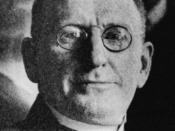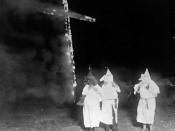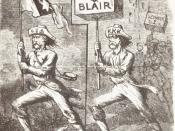"While many Americans were enjoying economic prosperity during the 1920s, there was also increasing social conflicts." Assess the validity of this statement with reference to Ku Klux Klan, fundamentalism and Sacco and Vanzetti case.
Political and cultural debates divided Americans of the 1920s. Major issues of the decade reflected a split between urban and rural, modern and traditional, radical and reactionary. Nativist, anti-radical sentiments emerged in a 1921 trial, the Sacco-Vanzetti Case. Two anarchists, Italian immigrants, were accused, convicted, and sentenced to die of committing murder. Many believed that the men's immigrant origins and political beliefs played a part in their convictions, since all Italians and anarchists were against all government. The case evoked protests from socialists, radicals, and prominent intellectuals, and remained a source of conflict for decades. Nativism also inspired the revival of the Ku Klux Klan in the 1920s, which gave them what was necessary to develop into a strong political influence, making its support more important for candidates hoping to win election to state and local offices.
The new Klan targeted Catholics, Jews, and immigrants, as well as African Americans. They would burn crosses and apply vigilante justice, punishing their victims with whips, tar and feathers, and even the hangman's noose. It thrived in the Midwest and Far West, as well as in the South. With its women's auxiliary, the Women of the Klan, it raised millions of dollars and wielded political power in several states, including Oklahoma, Oregon, and Indiana. Conflict also arose over religious fundamentalism. In 1925 John T. Scopes, a Tennessee schoolteacher was tried for breaking a state law that prohibited the teaching of the theory of evolution in schools. This theory, its foes said, contradicted the account of creation in the Bible. Scopes and the American Civil Liberties Union believed...



Wow
VERY good essay, especially for it's length! A lot of info in few words without seeming too cluttered. very good!
3 out of 4 people found this comment useful.